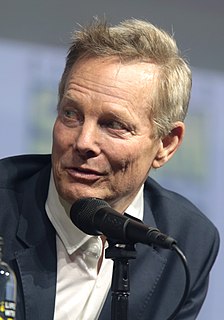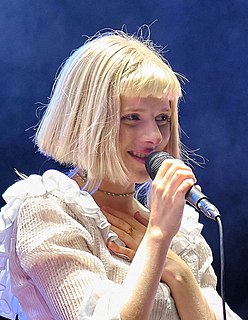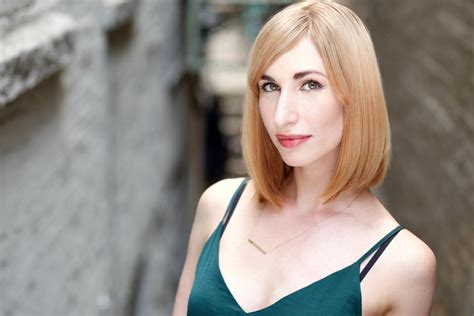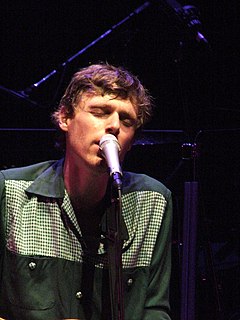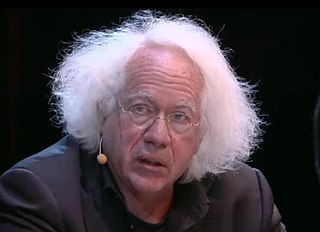A Quote by Bill Irwin
Acting is all about relating to the people on stage with you, even in plays that break the fourth wall. Clowning, for the most part, is the opposite. If somebody in the audience sneezes, I can count on it: I don't even have to look at Shiner; he'll have his handkerchief out. It's all about all of us in the room together.
Related Quotes
The most significant piece of advice my father gave me early on about acting was, don't get caught acting. Really believe in what you're doing and then commit to it. Even if it feels uncomfortable, even if you feel that you're gonna look like an ass. It's all acting, but find the truth in a moment as opposed to just pretending you have and rather than trying to act your way out of it.
I think that's true of all cinema, that's why cinema is the great humanistic art form. Whatever the film is, it doesn't matter what the film is about, or even whether it's a narrative or figurative film at all, it's an invitation to step into somebody else's shoes. Even if it's the filmmaker's shoes filming a landscape, you go into somebody else's shoes and you look out of their lens, you look out of their eyes and their imagination. That's what going to the pictures is all about.
It [The Esemblist] is also about the generation of audience members that are watching shows and listening to us at the same time; hopefully, in time, when they listen to our show and then go see a show, they'll realize even more what it takes to make a show, and they'll know even more about everybody on stage, rather than just people above the title of the show.
For me, the real goal is to integrate. The thing that I'm most happy with is the fact that I've been able to keep doing all of it - to keep writing, and to keep acting in movies, and to keep acting on the stage, to keep directing plays. I find that they feed each other, and that I learn about acting from directing and I learn about writing from acting.
But even now, with the crates piled high in the hall, what I see most plainly about the books is that they are beautiful. They take up room? Of course they do: they are an environment; atoms, not bits. My books are not dead weight, they are live weight — matter infused by spirit, every one of them, even the silliest. They do not block the horizon; they draw it. They free me from the prison of contemporaneity: one should not live only in one’s own time. A wall of books is a wall of windows.
With me, even if my life depended on it, I wouldn't be able to cry. Not with somebody there. Because even if I'm talking about bad and upsetting things, if there is somebody else in the room, I am trying to entertain them. If there is somebody there, I am in performance mode. I can only cry if I am on my own.
There are lots of incredible people who are working in very flawed structures that are designed to keep us apart, so we're going to have to figure this out. The first stage is just talking about it openly: We are all working within structures where there is a disincentive to do what we most need to do, which is come together. I don't know what the answer is but I definitely think that that first stage is just being honest about it and trying to speak about it in a way that is not just accusatory.
And then she realized that his presence was the wall, his presence was destroying her. Unless she could break out, she must die most fearfully, walled up in horror. And he was the wall. She must break down the wall. She must break him down before her, the awful obstruction of him who obstructed her life to the last. It must be done, or she must perish most horribly.
I realized that acting is not all about receiving people's applause or cheer. It is about delivering the right character to the audience and feeling satisfied in who you become on stage. Therefore, I try to focus more on the abstract qualities of acting, and I hope to become a better actress throughout time.
My favorite thing about acting is you have to learn how to work with people that you probably would never try to. Some people just aren't supposed to be in a room together, and you have to be in a room with a group of people who might not all get along and you have to figure out how to come together for one thing. That collaboration is special, and people don't get to exercise that. I think that's why people become stubborn, and I think that's why people become uninspired to change. In this job you have to.
